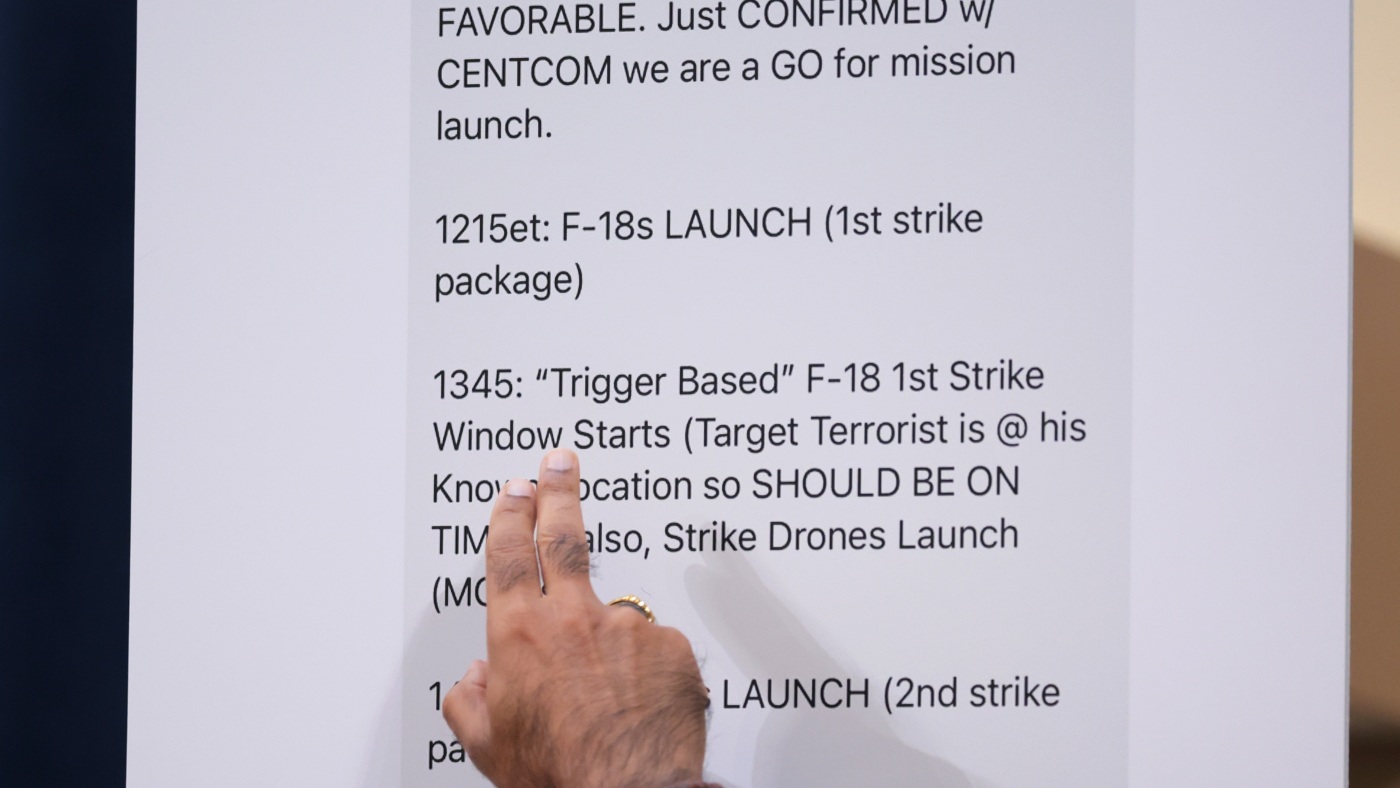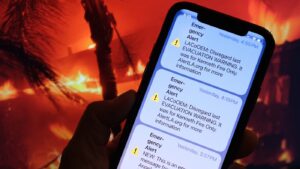National Security Breach: A Journalist’s Accidental Insight into U.S. Military Plans

A House lawmaker points to text messages by Defense Secretary Pete Hegseth during a hearing on March 26. The hearing, held by the House Intelligence Committee, addressed Trump administration officials inadvertently including a journalist on a high-level Signal group chat in which plans to bomb Houthi targets in Yemen were discussed.
Kayla Bartkowski/Getty Images
The leak of a sensitive discussion among national security officials has been met with mixed reactions. The conversation, which took place on the encrypted Signal messaging app, accidentally included a journalist. During a recent White House briefing, press secretary Karoline Leavitt criticized the media for fixating on a story from what she described as the “failing Atlantic magazine.”
Jeffrey Goldberg, editor-in-chief of The Atlantic, who inadvertently received the Signal message, released the entire exchange. Despite officials downplaying the incident, the message revealed discussions by top Trump administration officials, including Defense Secretary Pete Hegseth, about military operations in Yemen. Notably, Hegseth identified specific weapon systems and announced the operation’s commencement over an hour before the planned strikes.
The incident has sparked different reactions within the military community, where breaches of this nature, known as “spillage,” are generally treated severely. Military veterans and active-duty personnel face strict consequences for similar breaches, leading to concerns over apparent double standards.
Kevin Carroll, a veteran with extensive service in the Army, CIA, and Department of Homeland Security, noted, “What typically happens in a spillage as serious as this is they’re immediately fired.” He emphasized that an active-duty officer involved in such a breach would face severe repercussions.
Carroll, who has defended military personnel in similar situations, expressed concern over the lack of accountability for high-ranking officials involved in the Signal chat. “I’ve defended spillage cases where people were going to be put out of the military or people were going to be turned out of their job within the military for violations that are just the smallest fraction of what just occurred,” he explained.
Mick Mulroy, a former deputy assistant secretary of defense, described the Signal group as a significant breach. He believes that if lower-level officials had been involved, there would have been immediate investigations and possible court-martials.
Despite the controversy, Defense Secretary Pete Hegseth maintained, “Nobody’s texting war plans. There’s no units, no locations, no routes, no flight paths, no sources, no methods, no classified information.” However, Sen. Tammy Duckworth, an Iraq War veteran, sharply criticized Hegseth’s comments, accusing him of leaking classified information and calling for his resignation.
NPR disclosure: Katherine Maher, the CEO of NPR, chairs the board of the Signal Foundation.






